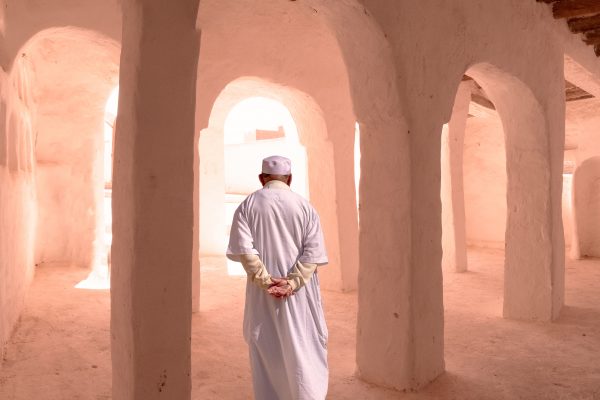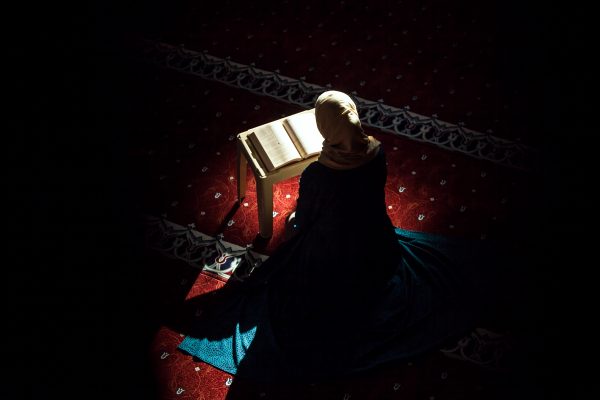Issues that Black Muslims talk about become lost in the narrative of Islamic studies.
Issues that Black Muslims talk about become lost in the narrative of Islamic studies.
Scholars and those with knowledge are a cornerstone of the Islamic community. As Muslims, we look to scholars for simple answers to complex questions. These questions may deal with how we pray, when we begin the Holy Month of Ramadan and many other aspects of our religious lives. I do put an emphasis on black scholarship in my writings, and in this article specifically, I wish to highlight the Black scholars of Islam, in particular, Dr Sherman Jackson and Dr Sylviane Diouf. I will also highlight historical Black scholars in order to create a historical context for Black Muslim scholarship.
Before I begin, what is Black Muslim scholarship? Is not all work done by a Muslim no matter their race simply “scholarship?” The answer is yes, and no… there is no reason to deny that majority of Muslims will probably struggle in naming ten black Muslim scholars. This means that issues that Black Muslims talk about become lost in the narrative of Islamic studies, such as racism. In simplistic terms, “Black Muslim Scholarship,” should be seen as, but not limited to, works based on Islam produced by and dealing with Black Muslims.
Jahiz of Basra (ca 776-896), wrote a lengthy essay entitled, “The Boast of the Blacks against the White.” In this essay, he defended the qualities of black people, epecially black people from East Africa, Zanj. He makes the claim that the only blacks that non-blacks have had interactions with were slaves. He also poses the question – if Blacks were to judge Indians or Whites by only interacting with slaves of those two races, what would Blacks think of them? This is not to say Jahiz was saying black slaves were less intelligent, but the social standings of black slaves and the preconceived notions of ignorance and stupidity did not allow non-blacks to see black slaves as anything but ignorant or stupid.
He goes on to defend Black Muslims as equal partners in marriage. The only reason he would do this is if Black Muslims were not seen as equal partners worthy of marriage by non-Black Muslims. Jahiz makes the claim that before Islam interracial marriages were not as taboo as when the “justice of Islam came.” He is making the claim that Islam made Whites arrogant which in itself is a sin. Lastly, he writes about blackness not being a curse or a punishment, but a natural condition which has no bearing on one’s traits. Unfortunately, the only reason he would make this claim is if it was said or presumed that blackness was a curse or a punishment.
Jamil-al-Din (1505) was another Black scholar that wrote on Islam and Blackness, his books Raising the Status of Ethiopians and The Lighting of the Darkness on the Merits of Black and Ethiopians both dealt with racism. He makes a claim that for Muslims today seems obvious – one cannot claim superiority based on race but only on deeds, and even then, one must be humble in those deeds. He draws attention to many creations in nature that are black, but are not seen as cursed or inherently inferior, for example a black stone is not inferior or superior to a white stone.
It is important to note that both Jahiz and Jamil-al-Din were not just concerned with black Muslims but blacks in general. This is the reason why Dr. Sylviane Diouf’s work is important, because though she is not a Muslim, she is a leading scholar in African Muslim history. Her book Servants of Allah (which is now in its 15th anniversary) should be read in every Islamic studies class. Servants of Allah details the lives of enslaved Black Muslims in the Americas, and is an excellent source on Black Muslims women enslaved in America also. She writes about how enslaved Muslim women that lived on Sea Island, an island off the coast of Georgia that was rarely inhabited by the White slave owners, cooked rice cakes as a form of sadaqah. To reiterate, black Muslim women enslaved were so committed to their religion that they gave to slaves that had less than them. She also writes on how Black Muslims during the Bahia Muslim Revolt in Brazil hid knives and other weapons under their clothes and saw it as their duty to fight and die for freedom.
Historian Dr Sherman Jackson wrote Islam and The Blackamerican in an attempt to explain how Islam was and is used by Black Americans to combat racism. He reminds us, like Dr Diouf, that the Muslim tradition in America goes as far back as the slave trade, but should not be the starting point of the Black Muslim narrative for Black Americans. He details how the Sunni Arab and South East Asian Muslim immigration ended up harming Black Muslims who were in the Nation of Islam. Black Muslims in the Nation of Islam wanted to combat racism while being Muslims but saw the Sunni Arab orthodoxy as another threat or form of racism. Black Muslims in the Nation of Islam were told by people who spoke Arabic and had a certain connection to prophetic knowledge, mainly due to proximity to Mecca, that the Nation of Islam was not “real” Islam. Dr Jackson reminds us that no matter the theology of the Nation of Islam, it is important to understand that it directly dealt with racism and black communities. Blacks were asked to not only care about their community but the global Muslim community. Unfortunately, this was not a two-way street – Black Muslims absorbed the global Muslim struggle, but the globe ignored Black Muslims.
The narrative of Black Muslim scholarship is one that deals heavily with racism. I highlighted works that dealt with racism because, like sexism, it is still said that the solution is simply that we should all practice Islam better. The first book I discussed was written two hundred years after the death of The Prophet and the last book I discussed was written eleven years ago. In that time, Muslims have not solved racism, yet it seems Black Muslims have been discussing it for centuries. My question is – if The Prophet’s teaching on racism was ignored just two hundred years after he died, what are we doing centuries later to cure the community of it?






